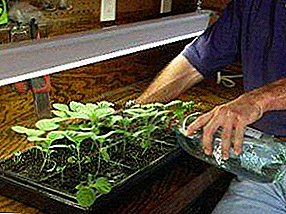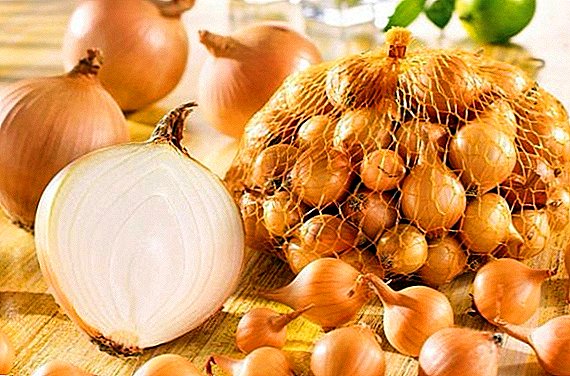 Apricot is a tree with bright sugar fruits that satisfy hunger and contain a lot of useful elements. Its distribution began from China, although apricot came to Slavs from Armenia.
Apricot is a tree with bright sugar fruits that satisfy hunger and contain a lot of useful elements. Its distribution began from China, although apricot came to Slavs from Armenia.
The chemical composition of apricot
All parts of apricot have a very generous chemical composition. The bark is rich in tannins, wood is flavonoids, the leaves contain phenol carbonic and ascorbic acids, and the flowers contain carotene. But most of the benefits are pulp (both fresh and dried), as well as the kernel of the fruit.
Apricot fruit contains a large amount of vitamins in the pulp: almost the entire group B, vitamins A, PP, C, H and E. The pulp contains trace elements such as iron, iodine, zinc, manganese, molybdenum, chromium, fluorine, boron, aluminum, silicon, vanadium, nickel and cobalt. Macronutrients are calcium, magnesium, sodium, potassium, phosphorus, chlorine and sulfur. The color of the fruit depends on the amount of carotene in it: the more of it - the brighter and richer the color.
 In the core of apricot seeds there is protein and oil with organic acids. These are linoleic, stearic and myristic acids. Seeds contain up to 50% non-drying fatty oil, in addition, they contain poison - hydrocyanic acid.
In the core of apricot seeds there is protein and oil with organic acids. These are linoleic, stearic and myristic acids. Seeds contain up to 50% non-drying fatty oil, in addition, they contain poison - hydrocyanic acid.
Useful properties of apricot
Ascorbic acid in the composition of apricot forms antibodies in the body that can resist infections. This vitamin makes the walls of blood vessels strong and resists cancer cells. Vitamin B5 (pantothenic acid) strengthens the nerve endings, stimulates the work of the internal glands and regulates lipid, protein and carbohydrate metabolism in the body.
Biologically active substances in the composition of the juice from the pulp of apricot stimulate appetite, improve the cardiovascular system, stimulate blood circulation and improve vision due to carotene. Regular consumption of juice reduces cholesterol, normalizes blood pressure and helps with liver disease.
The benefits of apricots for children are especially great. From the pulp prepare baby food, which contains easily digestible simple sugars. Mashed potatoes and canned foods stimulate the growth of children and have a tonic effect on the fragile body. Apricots regulate the acidity of the gastric juice, which normalizes the pancreas, gallbladder and liver.
Did you know? In the Middle Ages, the topic of aphrodisiacs was very popular in Europe. They also included apricots, which William Shakespeare mentioned in the play "A Midsummer Night's Dream."
The use of apricots in traditional medicine
 The list of diseases for which apricot helps is impressive: it is used for constipation, bowel disease, colitis, problems with cardiac activity. Apricot is an excellent antipyretic agent. Juice of the fruit inhibits putrefactive bacteria in the body. When constipation is recommended to drink apricot compote. Apricot juice eases discomfort during meteorism and dysbacteriosis.
The list of diseases for which apricot helps is impressive: it is used for constipation, bowel disease, colitis, problems with cardiac activity. Apricot is an excellent antipyretic agent. Juice of the fruit inhibits putrefactive bacteria in the body. When constipation is recommended to drink apricot compote. Apricot juice eases discomfort during meteorism and dysbacteriosis.
Dried fruits are useful for pregnant women, for patients with anemia - they compensate for potassium deficiency. Dried apricots also eliminate the bacteria in the mouth that carry an unpleasant odor. Folk and official medicine recognizes the benefit of dried apricots for cancer patients who need potassium and sodium to restore the body.
Apricot normalizes digestion. It is used when coughing as a diluent, used for bronchitis, whooping cough, trachea and pharynx inflammation. Eating "solar" fruits activates the brain. The benefits of apricots for stomach ulcers are also invaluable, they work as a diuretic, removing hidden edema that appear in this disease.
The use of apricots in cosmetology
Apricot is a valuable culture for cosmetology. It is used to create tonic, nourishing, cleansing, regenerating and strengthening means. Silicon present in the composition of apricot promotes the regeneration of damaged tissues, strengthens hair and nail plates. Sulfur improves the metabolism.
 Body scrub with apricot pits gently cleans the skin from dead and dead cells. The skin becomes healthy and color, becomes supple and soft.
Body scrub with apricot pits gently cleans the skin from dead and dead cells. The skin becomes healthy and color, becomes supple and soft.
Face mask is good for problem skin: it removes acne and irritation, deeply cleanses and smoothes fine wrinkles, smoothes the skin. Regular use of hair masks will give them a healthy shine, stimulate their growth and give strength to weakened hair.
Apricot butter used in care products for hands, nails and eyelashes. In frosty and windy weather, the oil will replace lip balm and cure the already weathered ones.
The use of apricots in cooking
Apricot is loved by many chefs. It is used as a filling for pies, muffins, cupcakes, buns and other pastries. Cakes and cream desserts decorate with fruit halves. Prepare mousses and souffles, cottage cheese casseroles. Apricot is used to make jelly, marshmallow, marmalade. For the winter they cook jam, marmalade, jams from it, freeze and dry, preserve whole and halves, make syrups, dry.
The characteristic sour taste allows you to stew apricot with meat and poultry, bake in rolls, add to salads, seasonings and sauces. Cooked with apricot pilaf, porridge and other main dishes and side dishes. Compotes are boiled from apricot, squeezed out juice, make kissel and fruit drinks. An extract for essences is produced from the fruit juice. Kernels are used as a substitute for almonds.
Important! Apricot kernels can not be carried away - they have hydrocyanic acid that can cause poisoning at high concentrations.
 Apricot is made with many oriental sweets: sherbet, halva, Turkish delight and others. Alcohol manufacturers also resort to apricot: they make liqueurs, wine and tinctures from it, which can also be used in the preparation of desserts, for example, soak cakes for cakes with apricot alcohol.
Apricot is made with many oriental sweets: sherbet, halva, Turkish delight and others. Alcohol manufacturers also resort to apricot: they make liqueurs, wine and tinctures from it, which can also be used in the preparation of desserts, for example, soak cakes for cakes with apricot alcohol.
Interesting! The famous liqueur made in Italy "Amaretto" is flavored with apricot seed extract.
Contraindications and side effects of apricot
Contraindications to the use of apricot are an acute form of pancreatitis, thyroid disease and a serious violation of liver function. In such disorders of the body, retinol and carotene present in the composition of apricot are not absorbed. Eating more than 20 grams of apricot kernels a day will lead to consequences such as nausea, vomiting, weakness, indigestion, and even loss of consciousness. This is due to the content in the nucleus of glycoside and amygdalin, poisonous substances.
Attention! Even in a healthy person, a large amount of fruit eaten will cause diarrhea.
 Do not eat large quantities of apricot diabetes. If we take into account that many easily digestible sugars are in the fruits, people with diabetes should keep consumption to a minimum, and those with diabetes who take on critical forms should be completely abandoned.
Do not eat large quantities of apricot diabetes. If we take into account that many easily digestible sugars are in the fruits, people with diabetes should keep consumption to a minimum, and those with diabetes who take on critical forms should be completely abandoned.
In general, it is a positive, bright and sunny fruit. On a cold winter evening, a delicious dessert with an orange speck will lift your spirits and give you warmth.












